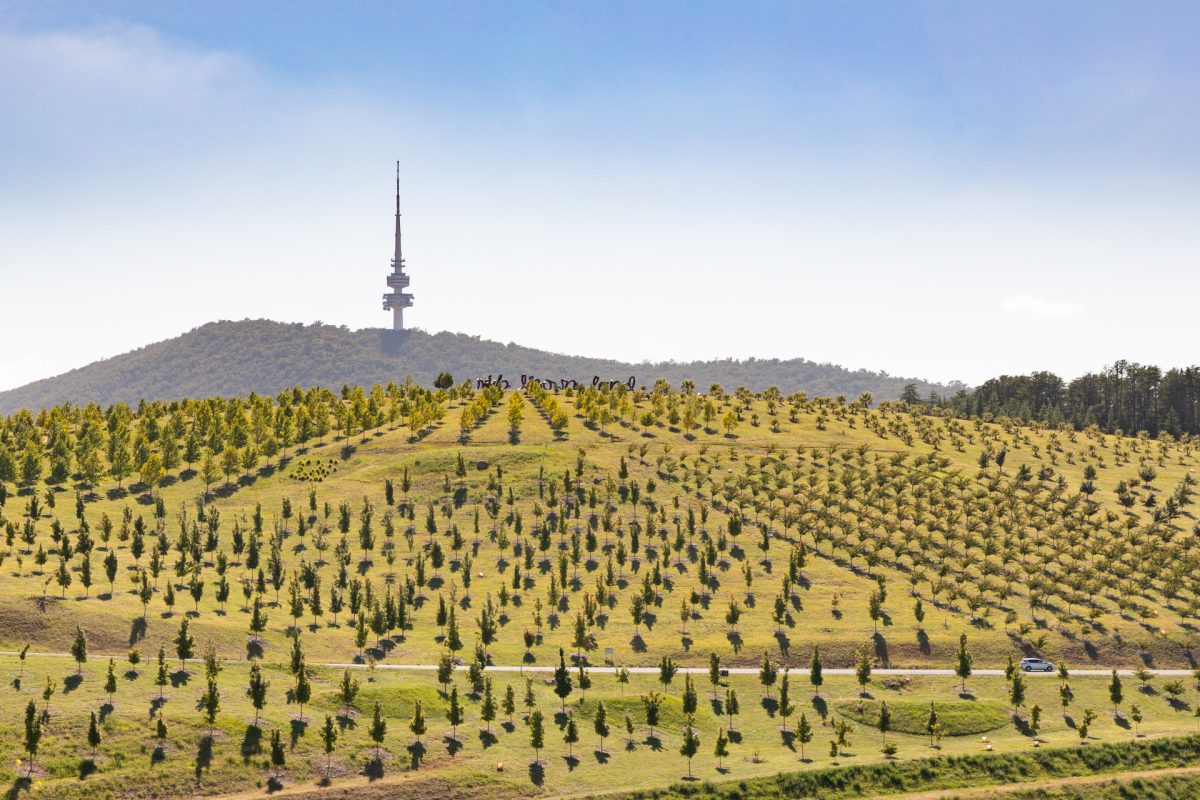The National Arboretum has become one of Canberra’s go-to tourist attractions. Photo: Michelle Kroll.
Picnics, school formals, dates, marriage proposals, weddings, anniversary lunches – not to mention a perfect backdrop for car photography – the National Arboretum has seen it all. Little wonder the 250-hectare site has become one of the jewels in the Canberra crown since opening 10 years ago this February.
So it might be hard to believe it wasn’t always thus.
“There was a lot of negativity about it when it first started,” executive branch manager Scott Saddler says.
“A lot of people thought putting trees back in an area that had just been razed by bushfire was a bad idea.”
Scott joined management in 2015, but the idea of Canberra having a botanical garden devoted to trees dates back to 1911.
In his original plan for the then-new federal capital, Walter Burley Griffin envisioned an arboretum on the western side of the lake. Inspired by Gondwana and the idea that today’s continents were once one land mass, it would feature plants from different continents in corresponding areas of the arboretum.
But it took former ACT chief minister Jon Stanhope to make it happen decades later in 2003. He launched the National Arboretum Canberra on the site of a burnt-out pine forest as a tribute to the resilience of Canberrans following the tragic January firestorm that year.
A joint proposal called ‘100 forests and 100 gardens’ won the design competition for its presentation of 100 monocultures forests of rare, threatened or symbolic trees from Australia and around the world.

The first trees were planted in 2007, while work on the visitor’s centre, café, Bonsai and Penjing Centre, children’s playground and other infrastructure started in 2010. The terraced ‘Central Valley’ development near the Village Centre even became Australia’s largest sculpted earthwork since the Sydney Olympics.
By 1 February 2013, the National Arboretum was ready. More than 15,000 people attended the opening day festival, with predictions more than one million would visit in the first five years.
Turns out they were wrong. More than six million people have come through the gates since then. The annual count now numbers about 700,000, including 30,000 school children.
“This is a world-class facility,” Scott says.
“There’s nothing else like this in the world, where you can immerse yourself in a monoculture – a whole forest of one tree species. It’s very special and the public loves it. We haven’t had any negativity for some years now.”
Now as the Arboretum passes the 10-year mark, it’s looking better than ever. A huge amount of rain in 2021 brought on the greatest growth in its history – more than 30 per cent in many of the forests. Before this, Scott says pumping water from the lake was another major boost.
“We used to have just enough water to manage the trees, but since that irrigation infrastructure was added about seven years ago, we have enough water for the trees to be sustainable and increase the growth levels of all the forests,” he says.
“They’ve grown exponentially.”

But the forests wouldn’t be the way they are if it weren’t for the staff and volunteers, as well as the non-profit community organisation Friends of the National Arboretum Canberra. Combined, these number more than 900 people.
“Our ‘Friends’ are judges, pilots, solicitors, lawyers, and others who turn up every Tuesday and Thursday – rain, hail, or shine – to help with anything from weeding around the base of the trees to mulching around the gardens,” Scott says.
“I have to say a huge ‘thank you’ to each and every one of these people.”
In addition to more growth bringing added depth and height to each of the forests, Scott says there’s a full calendar of birthday events to look forward to in 2023.
On 28 April, the Canberra International Music Festival is holding a solo recital in the Margaret Whitlam Pavilion, followed by a ”musical walk” among the gardens, culminating with a performance by Canberra’s own Australian Dance Party.
Visit the Canberra International Music Festival website for more information or to book your tickets.
This article was originally written and published by James Coleman from Riotact on 5 February 2023.
